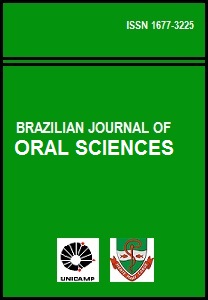Abstract
This study aimed to review the dental literature about caries risk assessment over the last 10 years in order to show which variables have been considered risk predictors and risk factors of dental caries in infants, preschool-, schoolchildren and adolescents. A Medline search of the published English language literature from 1997 to 2007 was made for papers of longitudinal studies that reported on caries risk assessment. A total of 39 papers were included in this review. Most studies were conducted in schoolchildren (n=19), followed by preschool children (n=9), adolescents (n=7) and infants (n=4). Variables such as caries experience, gingival status, microbiological counts, oral hygiene, plaque mineral concentration, fluoride history, socioeconomic and educational level, demographic, anthropometrical, oral, dietary and toothbrushing habits were studied. Past caries experience has been the predominant predictor for future caries in 0-18- year-old subjects. Other variables, such as dietary habits, including sugar intake, and toothbrushing habits may also help identifying high-risk individuals. In conclusion, the variables related to caries experience continue to be the main predictor of caries increment.The Brazilian Journal of Oral Sciences uses the Creative Commons license (CC), thus preserving the integrity of the articles in an open access environment.
Downloads
Download data is not yet available.

